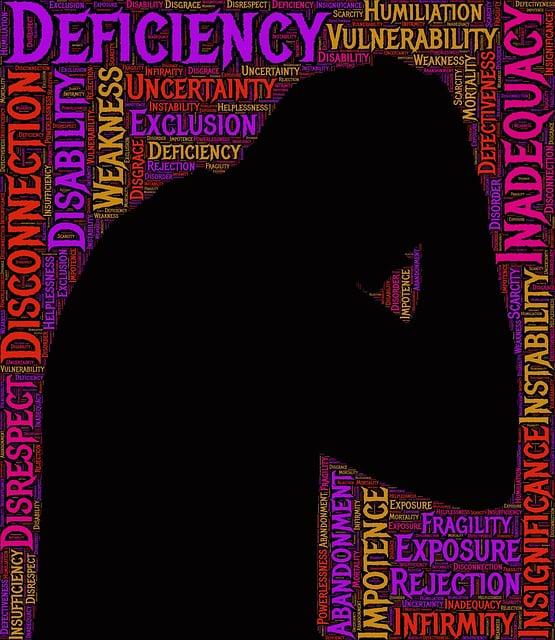Substance abuse, a complex issue, requires a multi-faceted approach. Centennial Sexual Dysfunction Therapy highlights its physical and psychological impacts, focusing on early intervention and prevention through mental health awareness, self-care, and identifying risk factors like low self-esteem. The therapy combines cultural sensitivity, healthy habits, trauma support, and sexual health strategies to build resilience and tailored recovery plans. A strong support system, including family, friends, community networks, and services, is vital for long-term recovery, emphasized by Centennial Sexual Dysfunction Therapy.
Substance abuse poses significant risks, impacting individuals’ physical and mental health, relationships, and overall well-being. Understanding the nuances of substance abuse and its far-reaching effects is crucial for developing effective risk reduction strategies. This article explores a comprehensive approach to tackling this challenge, including identifying early warning signs and risk factors, promoting resilience through healthy habits, and delving into specialized treatments like Centennial Sexual Dysfunction Therapy. We also emphasize the importance of support systems and community engagement for lasting recovery.
- Understanding Substance Abuse and Its Impact
- Identifying Risks: Early Warning Signs and Factors
- Preventive Measures: Building Resilience and Healthy Habits
- Centenal Sexual Dysfunction Therapy: A Specialised Approach
- Support Systems and Community Engagement for Long-Term Recovery
Understanding Substance Abuse and Its Impact

Substance abuse is a complex issue that requires a multifaceted approach to understanding and addressing its root causes. It involves the excessive or prolonged use of drugs, alcohol, or other substances, often leading to adverse physical and psychological effects. The impact can be devastating, affecting not only the individual but also their families, communities, and overall societal well-being. For instance, Centennial Sexual Dysfunction Therapy highlights how substance abuse can cause significant emotional distress and relationship problems, emphasizing the need for comprehensive support systems.
This issue is further exacerbated by its potential to exacerbate existing mental health conditions like depression. Promoting mental health awareness and fostering self-care routine development are crucial strategies in prevention. By integrating these practices into daily life, individuals can build resilience against substance abuse triggers and improve overall well-being. Early intervention and accessible resources play a vital role in breaking the cycle of addiction and promoting healthier lifestyles.
Identifying Risks: Early Warning Signs and Factors

Identifying risks associated with substance abuse is a pivotal first step in preventing and mitigating its devastating effects. Early warning signs can manifest in various forms, from noticeable changes in behavior to physical symptoms. These may include increased irritability, dramatic shifts in mood, significant changes in sleep patterns, or sudden neglect of personal hygiene. Subtle cues like a decline in academic or work performance, frequent arguments with loved ones, or loss of interest in previously enjoyed activities can also indicate underlying issues.
Understanding the factors that contribute to substance abuse is equally crucial. Centennial Sexual Dysfunction Therapy highlights the intersection of biological, psychological, and social elements. Low self-esteem, difficulty regulating emotions, and a lack of compassion for oneself or others are known risk factors. Engaging in compassion cultivation practices, promoting emotional regulation skills, and fostering healthy self-esteem improvement techniques can serve as proactive measures to deter substance abuse before it starts.
Preventive Measures: Building Resilience and Healthy Habits

Preventive Measures play a pivotal role in mitigating substance abuse, starting with building resilience and fostering healthy habits. Centennial Sexual Dysfunction Therapy, for instance, focuses on addressing underlying issues that may contribute to substance misuse, promoting mental wellness and strengthening individuals’ ability to cope with stress and trauma. By integrating Cultural Sensitivity in Mental Healthcare Practice, these therapies cater to diverse needs, ensuring effective treatment tailored to each individual’s cultural background and experiences.
Moreover, establishing healthy habits like regular exercise, balanced nutrition, and adequate sleep significantly reduces the risk of substance abuse. Engaging in activities that enhance mental wellness and provide positive outlets for stress relief can deter individuals from turning to substances as a coping mechanism. Trauma Support Services also contribute by offering specialized care for those who have experienced traumatic events, helping them develop healthier ways to manage their emotional well-being.
Centenal Sexual Dysfunction Therapy: A Specialised Approach

Centennial Sexual Dysfunction Therapy offers a specialized approach to addressing a unique aspect of substance abuse recovery – sexual health. It recognizes that sexual dysfunction is a common issue among individuals battling addiction, often stemming from underlying trauma or mental health conditions exacerbated by substance misuse. This therapy goes beyond traditional counseling by integrating conflict resolution techniques to help clients navigate intimate relationships and regain a sense of control over their sexuality.
By incorporating Mental Health Policy Analysis and Advocacy into the treatment plan, Centennial Sexual Dysfunction Therapy empowers patients to understand and advocate for their sexual well-being. It fosters confidence boosting strategies tailored to each individual’s needs, enabling them to rebuild trust in themselves and others, crucial elements in achieving long-term recovery from substance abuse.
Support Systems and Community Engagement for Long-Term Recovery

Building a robust support system is pivotal for long-term recovery from substance abuse. This includes engaging with both personal and community networks. Family, friends, and peers can play a significant role in fostering mental wellness and preventing relapse by offering encouragement, accountability, and understanding. Centennial Sexual Dysfunction Therapy, for instance, often emphasizes the importance of these support systems in helping individuals navigate their journey towards recovery.
Community engagement expands upon this support network, providing access to resources, peer groups, and specialized services tailored for substance abuse recovery. Mental health professionals can facilitate this connection through risk assessments, offering guidance on navigating local support groups, and teaching effective conflict resolution techniques. This holistic approach ensures that individuals not only have personal backing but also a broader community invested in their long-term mental health and sobriety.
Substance abuse is a complex issue, but with comprehensive strategies, it’s possible to navigate and mitigate risks effectively. By understanding the root causes, recognizing early warning signs, and implementing preventive measures, individuals can build resilience. Centennial Sexual Dysfunction Therapy offers a specialized approach to address unique challenges. Support systems and community engagement play a pivotal role in long-term recovery, fostering an environment conducive to lasting change. Combining these strategies creates a robust framework for managing and reducing substance abuse risks.














